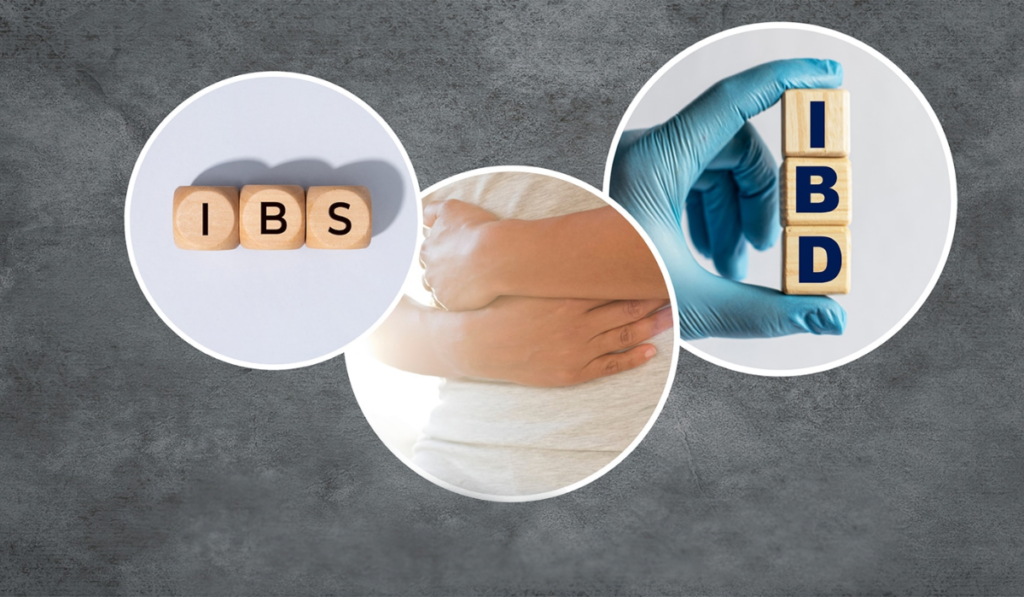
IBS or IBD: How do these two diseases vary?
We’ve all had uncomfortable digestion at some point. Bloating, painful cramps, inability to urinate, excessive urination… You get the idea.
Irritable bowel syndrome (IBS) and inflammatory bowel disease are two illnesses that frequently cause digestive distress (IBD). Despite having similar names, IBS and IBD are two entirely different medical conditions. You must have a thorough understanding of your problems in order to receive an accurate diagnosis. It will assist your medical professional in diagnosing and treating the condition.
It is a common misconception that IBS and IBD are the same or even similar. In order to get an idea, understanding the basics and consulting with a leading healthcare professional is important. For more information about it, symptoms of inflammatory bowel disease, and treatment options, keep scrolling.
What is IBD?
IBD is a collection of autoimmune disorders that encompasses ulcerative colitis and Crohn’s disease. In inflammatory bowel disease (IBD), your body is mistakenly attacked by your immune system, leading to harmful and persistent inflammation.
“With IBD, your intestines are the primary target of your immune system. An irregularity in which the immune system targets and inflames the colon is known as inflammatory bowel disease.
Adults with inflammatory bowel disease are most frequently diagnosed in their early 20s to 30s and in their 50s and 60s. IBD symptoms can be persistent and have a major negative impact on your quality of life.
What is IBS?
In contrast, IBS is not an illness and does not entail inflammation. This syndrome is characterized by a persistent functional disorder of the gastrointestinal tract, changed bowel habits, and persistent abdominal pain. Individuals with IBS frequently have normal test results and exhibit no clinical irritable bowel disease symptoms.
It is brought on by a malfunctioning gut-brain axis, which is the two-way chemical and physical pathway connecting your gut and brain. The speed at which food passes through your intestines is impacted by IBS. However, it doesn’t result in any bodily symptoms in other areas.
It is by no means the case that having IBS is easy; on the contrary. It can have a significant impact on your quality of life, but it is not as harmful to your GI tract as IBD and does not endanger your overall health.
IBD symptoms
The following are typical signs of inflammatory bowel disease:
- Diarrhea
- Rectal bleeding
- Bloating
- Periodic constipation
- Gas
- Urgent bowel movements
- stomach ache that cramps
- Urgent bowel movements
- Cramping abdominal pain
The following symptoms are of IBS:
- Cramping or discomfort in the abdomen
- Bloating/distension
- Constipation
- The diarrhea
- Mucus in the stool
- Urgent bowel movements
- Symptoms get worse during menstruation
- Gas
- The desire to move your bowels despite being unable to do so.
- Nausea
IBS Treatment
The way you manage your IBS frequently relies on your symptoms, but medications that relieve constipation and diarrhea can help. Additional therapies could be:
- Dietary adjustments: The low-FODMAPS diet, which excludes foods that usually cause IBS symptoms, may be advised by your doctor.
- Lifestyle modifications: Prioritizing exercise and healthy sleeping practices in addition to other therapies helps some people with IBS symptoms.
- Medication: No single medication for IBS can cure all cases. On the other hand, doctors may recommend an antibiotic for severe diarrhea linked to IBS and antispasmodic drugs to relieve intestinal spasms.
- Psychotherapy and antidepressants: Stress and mental health management can help to reduce IBS flare-ups.
IBD Treatment
Controlling your body’s inflammatory response and mending any damage caused by inflammation are the two main objectives of IBD treatment. Your healthcare professional will take into account the extent of the disease, any coexisting medical conditions, and the body parts impacted in order to make that decision.
Medication is commonly used to treat IBD. However, surgery might be required to treat inflammation-related complications and remove damaged tissue.
For IBD treatment, some common options are as follows:
- Anti-inflammatories such as mesalamine can help to reduce bowel inflammation.
- Immunomodulators prevent chronic inflammation caused by the immune system.
- Biologic and cutting-edge treatments are treatments that shift the immune system’s reaction in patients with mild to severe disease.
- Corticosteroids have the ability to control inflammation and help with flare-ups. However, they are not advised in the long run.
- Antibiotics are used to treat secondary infections resulting from Crohn’s disease or following surgery. In the absence of inflammation management, IBD patients may worsen over time and experience complications.
Conclusion
Despite their apparent similarities, IBD and IBS are two distinct illnesses that require very different approaches to treatment.
Reducing the inflammation that contributes to IBD symptoms is the aim. However, because there is no known physiological cause of IBS, it might not be treatable with medicine.
We’ve included a number of suggestions for symptom management as well as a number of available treatments.
Speak with a qualified healthcare provider who can identify your exact condition and provide you with the best course of action as well as tools to help you manage your symptoms.
And, get high-quality medications from the best community pharmacy. And, if you are looking for a leading drugstore in Houston, reach out to Scott Read Pharmacy.
